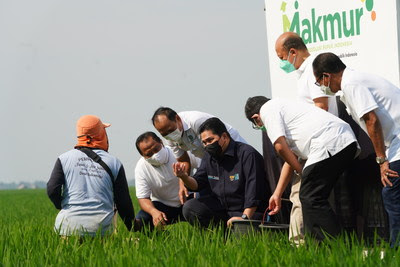LONDRES, 01 nov. 2022 (GLOBE NEWSWIRE) — Emerging Markets Global Advisory LLP (EMGA), qui travaille pour la deuxième fois avec Banco Improsa, obtient cette facilité de 20 millions de dollars US auprès de l’Agence espagnole de coopération internationale pour le développement (AECID)- AECID (conseillée par la COFIDES).
Commentant cette transaction, Felix Alpizar, directeur général de BANCO IMPROSA, a déclaré : « Banco Improsa est très honoré d’être reconnu par l’AECID et la COFIDES pour ses antécédents et pour ses programmes visant à financer et à soutenir les micro, petites et moyennes entreprises (MPME) costariciennes. Grâce à cette facilité de crédit, nous poursuivrons notre contribution au développement économique et social du pays. »
Sajeev Chakkalakal, directeur de la banque d’investissement d’EMGA, a déclaré : « Nous sommes de nouveau ravis de contribuer à la vision continue de Banco Improsa de soutenir les PME au Costa Rica et de compléter cette solution de financement avec l’AECID (conseillée par la COFIDES). »
José Luis Curbelo, président-directeur général de COFIDES, a déclaré : « Nous sommes très heureux de soutenir l’AECID dans son premier projet d’impact avec EMGA et BANCO IMPROSA dans la région d’Amérique centrale. La transaction servira à financer les petites et moyennes entreprises au Costa Rica, ce qui contribuera à la création et au maintien d’emplois de qualité et à la réduction des inégalités. Nous sommes impatients de poursuivre ces partenariats stratégiques qui améliorent la croissance économique dans les pays en développement en renforçant le secteur privé grâce à un soutien financier solide. »
Carlos Jiménez Aguirre, directeur général du FONPRODE et chef du département de coopération financière de l’AECID, a déclaré que « la formalisation de cette transaction reflète les objectifs de la coopération espagnole de contribuer à élargir le soutien financier aux micro, petites et moyennes entreprises (MPME) costariciennes, car les MPME jouent un rôle clé dans la création et le maintien d’emplois décents et la réduction des inégalités. Notre intention est d’étendre ce type de soutien à d’autres pays d’Amérique centrale en leur donnant accès au financement des MPME, avec un accent particulier mis sur l’intégration des stratégies relatives à l’égalité des sexes et aux changements climatiques dans les activités du secteur privé. »
Emerging Markets Global Advisory LLP, basée à Londres, aide les institutions financières et les entreprises basées sur les marchés émergents, qui recherchent de nouveaux capitaux d’emprunt ou capitaux propres.
Banco Improsa a été fondée en 1995. C’est une banque de niche spécialisée dans la fourniture de solutions et de services financiers aux MPME, qui représentent la majeure partie de son portefeuille. Elle dispose d’une vaste expérience dans la fourniture de services de soutien et de conseils aux MPME. Le facteur clé de réussite de Banco Improsa réside dans son engagement envers des normes élevées de service personnalisé, agile et flexible, qui, avec des solutions financières personnalisées, lui ont permis d’atteindre une position solide dans ces segments. Banco Improsa fait partie de Grupo Financiero Improsa (GFI).
Le Fonds pour la promotion du développement (FONPRODE) est géré par l’Agence espagnole pour la Coopération internationale au développement (AECID) avec l’appui de la COFIDES (Institution espagnole de financement du développement). L’AECID est le principal organe de gestion de la coopération espagnole et est axée sur la lutte contre la pauvreté et la promotion du développement durable. La COFIDES fournit un soutien à la gestion du FONPRODE avec des opérations de financement remboursables qui favorisent le développement économique et social des pays partenaires par le biais d’investissements ou de transferts de ressources économiques à caractère remboursable. Le FONPRODE peut financer des dettes et des capitaux propres non remboursables et remboursables. Parmi les exemples de financement remboursable proposés par le FONPRODE, on peut citer les prêts aux prestataires de services financiers visant à l’inclusion financière.
La COFIDES, société publique qui se consacre à la gestion de l’État et de tiers, ainsi que de ses propres fonds, poursuit plusieurs objectifs : l’internationalisation de l’économie espagnole, la promotion du développement économique et la fortification de la solvabilité des sociétés touchées par la COVID-19. Outre l’État espagnol, ses actionnaires comprennent Banco Santander, Banco Bilbao Vizcaya Argentaria (BBVA), Banco Sabadell et la Banque de développement d’Amérique latine (CAF).
Dobson Jeremy
GlobeNewswire Distribution ID 1000754205


